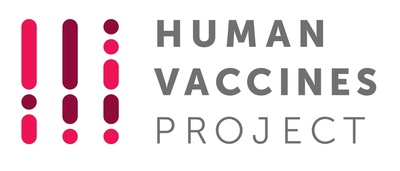The Human Vaccines Project, a global nonprofit consortium is launching the COVID Vaccine Initiative, with the goal to ensure the development of safe, effective, accessible vaccines for those most vulnerable to COVID-19.
NEW YORK, April 23, 2020 /PRNewswire/ -- The Human Vaccines Project (HVP), a global nonprofit consortium is launching the COVID Vaccine Initiative (CVI), with the goal to ensure the development of safe, effective, accessible vaccines for those most vulnerable to COVID-19. The focus will be on accelerating vaccine development for aging populations and those living in low- and middle-income countries.
The CVI will leverage HVP's world-class network of scientists, partnerships with vaccine developers, as well as the newly established collaboration with the Harvard T.H. Chan School of Public Health focused on generating effective immunity in aging populations. Founding partners of the initiative include FHI 360, a global nonprofit research and human development organization, and the Center for Infectious Disease Research and Policy (CIDRAP) at the University of Minnesota, a leading research and policy organization.
"As we have dramatically learned in the past few months, speed is of the essence in preventing and controlling pandemics," says Peter Doherty, Nobel Laureate and founding member of the HVP Scientific Steering Committee. "By accelerating development and access to vaccines, the COVID Vaccine Initiative will not only help solve this crisis but lay the groundwork for better prevention of future pandemics."
"Since the emergence of SARS-CoV-2 late last year, nearly 200,000 people have died, and modelers predict that millions may eventually die, with the highest rates of morbidity and mortality occurring in aging populations and those living in LMICs," says Wayne C. Koff, president and CEO of the Human Vaccines Project. "While the global research community is now focused on SARS-COV-2 vaccine development, this is unfortunately occurring in a fragmented fashion, with limited attention towards ensuring that vaccines will be effective in the most vulnerable populations."
The CVI's Research and Development program will conduct natural history and vaccine studies in aging populations and those living in LMICs and will apply HVP's cutting-edge methods in immune monitoring, systems biology, and Artificial Intelligence to determine how to generate effective immunity in these vulnerable populations. "FHI 360 is excited to join forces with the Human Vaccines Project's international consortium to accelerate COVID-19 vaccine development," says Timothy Mastro, Chief Science Officer of FHI 360. "As an organization committed to prevention and control of infectious diseases in LMICs, we look forward to contributing our global network and scientific capacity to this public health priority."
The CVI's Advocacy and Policy program will serve as a neutral forum for dissemination and synthesis of critical information and data relevant to accelerating vaccine development. The program will develop a roadmap to ensure that the major R&D challenges impeding the development of safe and effective SARS-CoV-2 vaccines are addressed. The CVI will continue to produce the weekly HVP COVID Report, reaching more than 7,000 global scientists and policymakers. The upcoming web-based CVI-Global Lab Meeting, beginning in May 2020, will bring together the global COVID-19 vaccine scientific community to review the latest data on a biweekly basis. Moreover, the CVI will also address key policy issues such as ensuring manufacturing capacity for efficacious vaccines, and equitable access and rapid deployment of licensed vaccines to vulnerable population groups.
"The COVID-19 pandemic has already highlighted striking limitations in global pandemic preparedness, and challenges for vaccine development for SARS-CoV-2," says Michael T. Osterholm, Director of CIDRAP. "We are very pleased to be collaborating with the Human Vaccines Project and FHI 360 on the COVID Vaccine Initiative, where we bring our decades of experience in translation of scientific information into real-world, practical applications, policies, and solutions."
The CVI will also provide a framework for addressing future pandemics that affect those most vulnerable. The world's population is aging at an unprecedented rate, with significant growth occurring in LMICs, increasing vulnerability to emerging infectious diseases, and the burden of non-communicable diseases. Deciphering the principles of effective immunity in aging populations and those living in LMICs will have profound implications for global prevention and control of disease.
About the Human Vaccines Project
The Human Vaccines Project is a nonprofit public-private partnership with a mission to decode the human immune system and accelerate the development of vaccines and immunotherapies across major global diseases. The Project brings together leading academic research centers, industrial partners, nonprofits and governments to answer core questions about how the human immune system fights disease and pioneer a new era in human health.
Learn more: http://www.humanvaccinesproject.org
About FHI 360
FHI 360 is a nonprofit human development organization dedicated to improving lives in lasting ways by advancing integrated, locally driven solutions. Our staff includes experts in health, education, nutrition, environment, economic development, civil society, gender equality, youth, research, technology, communication and social marketing — creating a unique mix of capabilities to address today's interrelated development challenges. FHI 360 serves more than 60 countries and all U.S. states and territories.
About CIDRAP
The Center for Infectious Disease Research and Policy is a global leader in addressing public health preparedness and emerging infectious disease response. Founded in 2001, CIDRAP is part of the Office of the Vice President for Research at the University of Minnesota.
![]() View original content to download multimedia:http://www.prnewswire.com/news-releases/human-vaccines-project-launches-global-initiative-to-accelerate-the-development-of-covid-19-vaccines-for-those-most-vulnerable-301046500.html
View original content to download multimedia:http://www.prnewswire.com/news-releases/human-vaccines-project-launches-global-initiative-to-accelerate-the-development-of-covid-19-vaccines-for-those-most-vulnerable-301046500.html
SOURCE Human Vaccines Project





